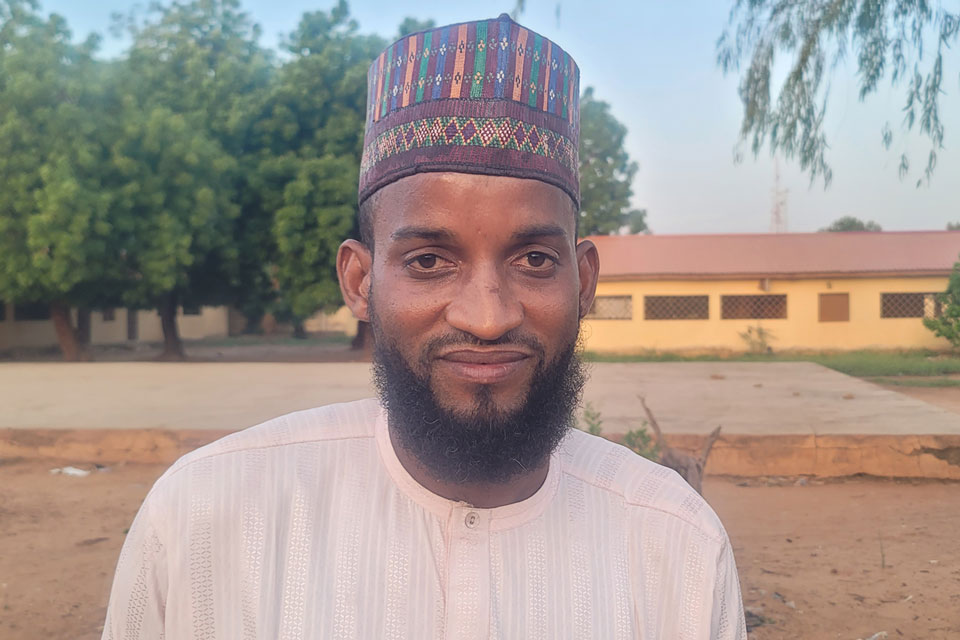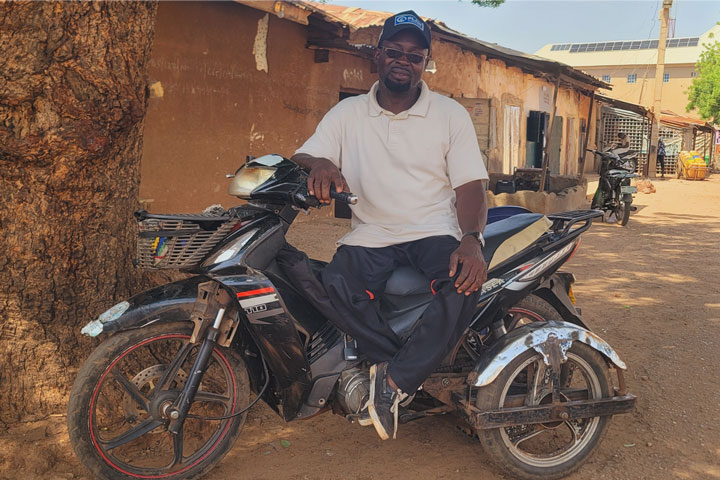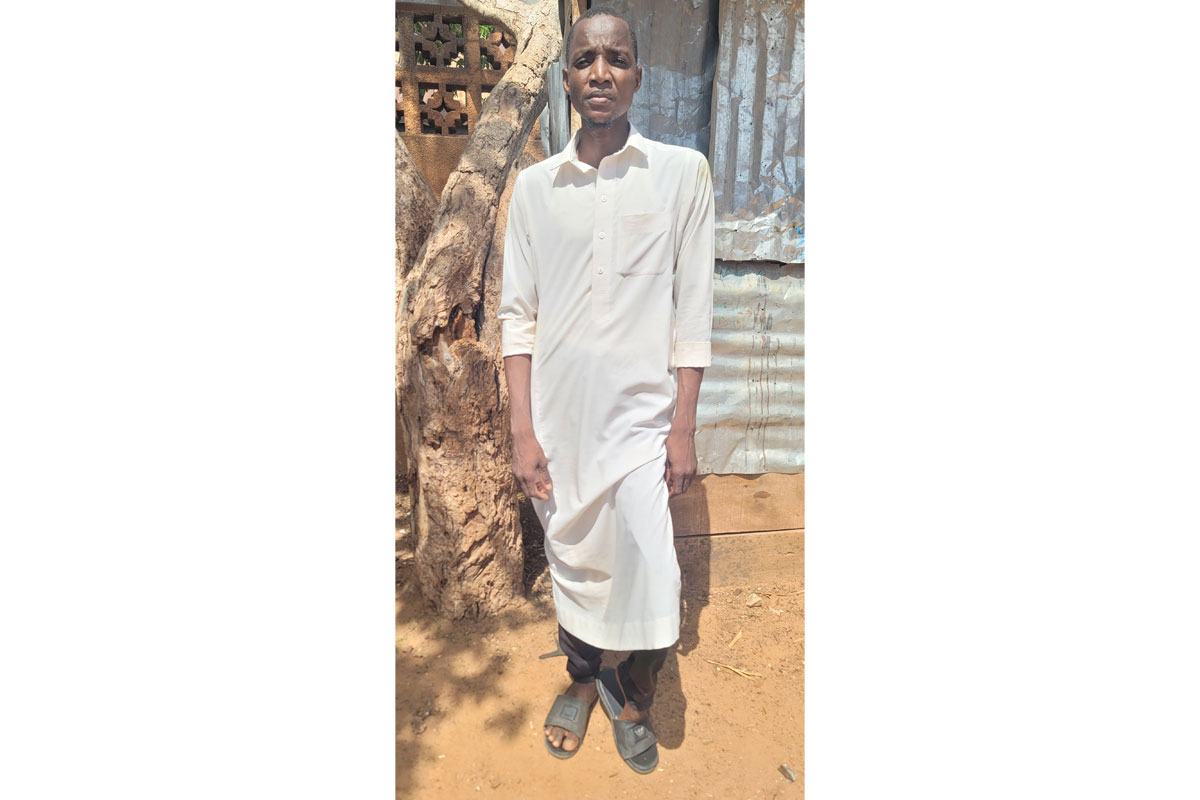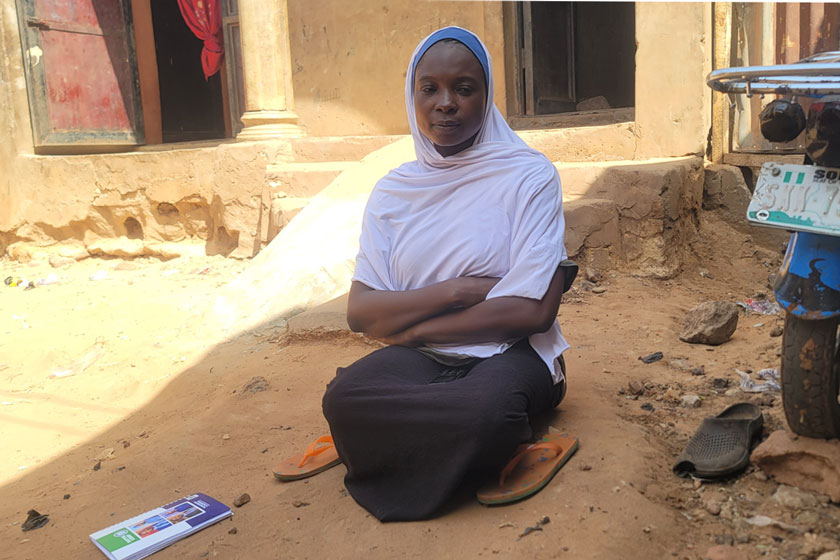“Seeing is believing”: how polio survivors are driving immunisation in northern Nigeria
In Sokoto State, Nigeria, a group of polio survivors is turning personal pain into powerful advocacy.
- 8 July 2025
- 6 min read
- by Tunde Omolehin

On a quiet Saturday morning in June, a dozen polio survivors gathered at a Social Welfare Centre in Sokoto, North-West Nigeria. It was a meeting to map out their schedules for an advocacy drive: a house-to-house awareness campaign ahead of national efforts to eradicate polio transmission by December 2025.
The members of the group teamed up with vaccinators to help them encourage parents to protect their children from the crippling virus.
“We do this because we don’t want any child to go through what we did,” says 35-year-old Bello Dikko, Chair of the Polio Survivors Association in Sokoto State. “We want to be champions of change."
“This is what we do: advocating for polio immunisation among households. We want to [help] overcome vaccine hesitancy and increase vaccine uptake within our communities.”
Decades of dedication
It all started in 2004, he says. What began as a movement of less than a dozen polio survivors has in the past couple of decades grown into a movement of 282 registered members across Sokoto State.
Like Dikko, Mukhtar Sani, 51, is one of the founding members of the Association. Sani said he was motivated by seeing high rates of vaccine rejection in Sokoto South, one of Nigeria’s highest-risk Local Government Areas (LGAs).

“Many of us polio survivors came from those very households that once rejected the vaccine. Even among the polio survivors we have many of them who did not want their children to be immunised. That was the situation then,” he said.
From survivors to advocates
Survivors now describe plying the same streets on which they once faced stigma for their disabilities, using their personal stories to shift mindsets.
Dikko and his team now use the “seeing is believing” approach, showing their changed bodies, telling their stories, and laying bare the irreversible damage polio has inflicted on them.
“That is why we use our stories to convince families, so they do not repeat the mistakes made by our parents,” says Dikko. “People now connect with what they can see, and what they can feel. When we tell our stories, it makes parents think twice.”
For 32-year-old Nuradeen Abubakar, the association’s Secretary, the scars are not just physical. “I was bullied and excluded as a child. I don’t want any child to go through that,” he says.

These survivors have built an armour of resilience to overcome the anxieties and anguish in the societies they lived in. Hauwa Buhari, Social and Behavioural Change Officer at UNICEF’s Sokoto Office, said the Association’s activities have come a long way in helping parents take the right decision on polio vaccination.
Have you read?
“Today, people have a perception of 'seen is believed'”. If you don’t see it, you don’t get to believe it actually happened. We didn’t see them as victims. We see them as champions who tell their stories to break the wall of denial,” Hauwa asserts.
Real change, one household at a time
Despite national efforts, immunisation with the full series of polio vaccines in Nigeria stands at just 62%. That’s well below the threshold for herd immunity – and in some parts of the country, coverage is thinner still. Vaccine hesitancy, misinformation and cultural beliefs remain major challenges. But the survivors’ efforts are making a difference.
Safiya Tambuwal, a housewife in Sokoto, remembers how a member of the association changed her husband’s mind. “I always wanted to vaccinate our baby, but my husband refused because of his religious beliefs,” she says.
The turning point came in May last year, when Hadiza Bello, a 32-year-old survivor and a mother herself, approached Tambuwal’s husband on the need to embrace immunisation. “I always had the intention of getting my child vaccinated long before then, but my husband had remained indifferent until Hadiza intervened.”
Tambuwal’s husband had warned her of dire consequences if she took the child for immunisation exercises. As a stay-at-home mother, she felt dependent on his permission. “After a weeklong conversation and arguments on the contradictions and beliefs on the Islamic perspectives with Hadiza, my husband eventually sorted for my son to be vaccinated,” Tambuwal recalls.
Tambuwal’s husband was not the only person whose stance shifted when he met Bello. “I shared my story to most households, and it really touched them a lot,” Bello says. “Being a woman, in motherhood, but with paralysed body.”
Bello, who uses a hand-operated wheelchair, went on “When they see me – pregnant, disabled, still advocating – they listen. Many don’t hesitate after that.”
Building trust
The association’s impact has grown through partnerships with UNICEF and the Sokoto State Ministry of Health. Together, they’ve organised radio campaigns, para-soccer tournaments and public rallies on UN commemoration days.
Survivors now speak at national and state health events, challenging stereotypes and reshaping public opinion.
“We’ve achieved a lot because of our partnerships,” says Sani. “We work together with Sokoto State Primary Healthcare Development Agency through the State Ministry of Health to achieve this.”

In October last year, UNICEF hosted a three-week para-soccer tournament for polio survivors. The event drew attention to their cause and gave survivors a platform to inspire others.
Community leaders and health officials agree that the survivors’ involvement is key to progress. “In this community, every vaccinated child is a sign that a polio survivor made a difference,” says Abdullahi Shehu, a community leader and immunisation team member in Sokoto North.
Sokoto State’s Health Commissioner, Faruk Umar, says the numbers speak for themselves. “In April, over 4,000 households rejected vaccines. By June, that number now dropped to 1,500 households. That’s the power of community-based advocacy.”
UNICEF’s Hauwa adds, “People are beginning to see that polio is real. Most polio cases in Nigeria are from the north. Survivors are helping us reach those who are hardest to convince.”
The road ahead
Despite their successes, the survivors face serious challenges. Many lack mobility aids and rely on crawling or hand-operated wheelchairs to reach households. “Some of us crawl from house to house,” says Dikko. “We need wheelchairs, tricycles, even a bus to help us move.”
Funding is a persistent hurdle. As donor focus shifts, the association struggles to sustain its activities. But for Dikko, Nuradeen, Hadiza and Sani, this work is more than a campaign – it’s a calling.
“We’re not just telling stories,” says Hadiza. “We’re saving lives.”





